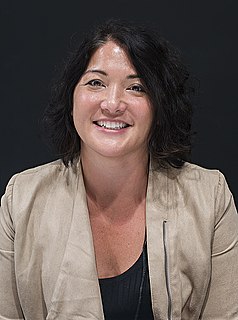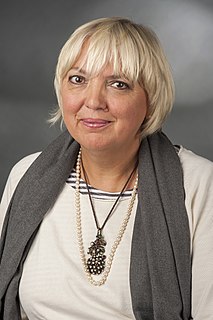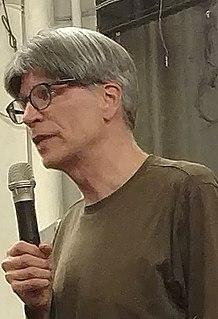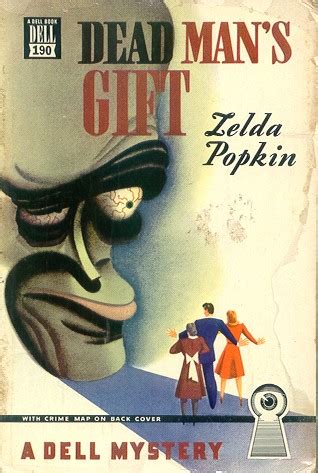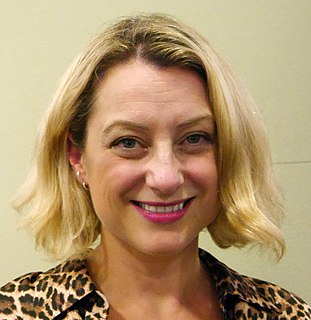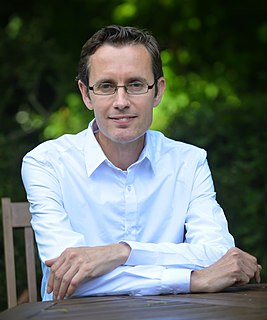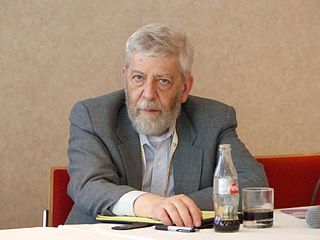Top 888 Novelist Quotes & Sayings - Page 15
Explore popular Novelist quotes.
Last updated on November 9, 2024.
I feel like the reason I ended up becoming a playwright is because I never choose the right word. As a kid, my fantasy profession was to be a novelist. But the thing about writing prose - and maybe great prose writers don't feel this way - but I always felt it was about choosing words. I was always like, "I have to choose the perfect word." And then it would kill me, and I would choose the wrong word or I would choose too many perfect words - I wrote really purple prose.
"Between a high, solid wall and an egg that breaks against it, I will always stand on the side of the egg."
Yes, no matter how right the wall may be and how wrong the egg, I will stand with the egg. Someone else will have to decide what is right and what is wrong; perhaps time or history will decide. If there were a novelist who, for whatever reason, wrote works standing with the wall, of what value would such works be?
Love. Children are loving, they dont gossip, they dont complain, theyre just open-hearted. Theyre ready for you. They dont judge. They dont see things by way of color. Theyre very child-like. Thats the problem with adults: they lose that child-like quality. And thats the level of inspiration thats so needed and is so important for creating and writing songs and for a sculptor, a poet or a novelist. Its that same kind of innocence, that same level of consciousness, that you create from. And kids have it. I feel it right away from animals and children and nature. Of course.
a novelist's chief desire is to be as unconscious as possible. He has to induce in himself a state of perpetual lethargy. He wants life to proceed with the utmost quiet and regularity. He wants to see the same faces, to read the same books, to do the same things day after day, month after month, while he is writing, so that nothing may break the illusion in which he is living - so that nothing may disturb or disquiet the mysterious nosings about, feelings around, darts, dashes, and sudden discoveries of that very shy and illusive spirit, the imagination.
One realizes that human relationships are the tragic necessity of human life; that they can never be wholly satisfactory, that every ego is half the time greedily seeking them, and half the time pulling away from them. In those simple relationships of loving husband and wife, affectionate sisters, children and grandmother, there are innumerable shades of sweetness and anguish which make up the pattern of our lives day by day, though they are not down in the list of subjects from which the conventional novelist works.
Plato said that poets should be excluded from the ideal republic because they are such liars. I am a poet, and I affirm that this is true. About no subject are poets tempted to lie so much as about their own lives; I know one of them who has floated at least five versions of his autobiography, none of them true. I of course - being also a novelist - am a much more truthful person than that. But since poets lie, how can you believe me?
I've been working hard on [Ulysses] all day," said Joyce. Does that mean that you have written a great deal?" I said. Two sentences," said Joyce. I looked sideways but Joyce was not smiling. I thought of [French novelist Gustave] Flaubert. "You've been seeking the mot juste?" I said. No," said Joyce. "I have the words already. What I am seeking is the perfect order of words in the sentence.
Political thriller? International thriller? Financial thriller? Whatever you call it, The Ascendant is smart, edgy, fast-paced storytelling at its best. Its unlikely hero, Garrett Reilly, reminded me of a young Jack Reacher as a tech-sa What I said: “Political thriller? International thriller? Financial thriller? Whatever you call it, The Ascendant is smart, edgy, fast-paced storytelling at its best. Its unlikely hero, Garrett Reilly, reminded me of a young Jack Reacher as a tech-savvy bond analyst. Drew Chapman is a debut novelist to watch.
The point I would make is that the novelist and the historian are seeking the same thing: the truth – not a different truth: the same truth – only they reach it, or try to reach it, by different routes. Whether the event took place in a world now gone to dust, preserved by documents and evaluated by scholarship, or in the imagination, preserved by memory and distilled by the creative process, they both want to tell us how it was: to re-create it, by their separate methods, and make it live again in the world around them.
Ashton Ford will come as something of a surprise to those of you who have been with me over the years. This is not the same type of fiction that established my success as a novelist; Ford is not a gutbuster and he is not trying to save the world from anything but its own confusion. There are no grenade launchers or rockets to solve his problems and he is more of a lover than a fighter. I have grown, I hope, both as a person and as a writer, and I needed another vehicle to carry the creative quest. Ashton Ford is that vehicle.
I was once doing a question and answer period with the novelist Jane Smiley in a bookstore and someone asked us what our processes were and Jane said hers and then I said mine and Jane said, "Well, if I had a student like that I'd force him never to write like that again because you could never write a novel in the way that you write poetry."
There was a time when the average reader read a novel simply for the moral he could get out of it, and however na?ve that may have been, it was a good deal less na?ve than some of the limited objectives he has now. Today novels are considered to be entirely concerned with the social or economic or psychological forces that they will by necessity exhibit, or with those details of daily life that are for the good novelist only means to some deeper end.
At any rate, that’s how I started running. Thirty three—that’s how old I was then. Still young enough, though no longer a young man. The age that Jesus Christ died. The age that Scott Fitzgerald started to go downhill. That age may be a kind of crossroads in life. That was the age when I began my life as a runner, and it was my belated, but real, starting point as a novelist.
Science fiction is not predictive; it is descriptive.... Prediction is the business of prophets, clairvoyants, and futurologists. It is not the business of novelists. A novelist's business is lying.... Open your eyes; listen, listen. That is what the novelists say. But they don't tell you what you will see and hear. All they can tell you is what they have seen and heard, in their time in this world, a third of it spent in sleep and dreaming, another third of it spent in telling lies.
The syndicates take the strip and sell it to newspapers and split the income with the cartoonists. Syndicates are essentially agents. Now, can you imagine a novelist giving his literary agent the ownership of his characters and all reprint, television, and movie rights before the agent takes the manuscript to a publisher? Obviously, an author would have to be a raving lunatic to agree to such a deal, but virtually every cartoonist does exactly that when a syndicate demands ownership before agreeing to sell the strip to newspapers.
Radio, or at least the kind of radio we're proposing to do, can cut through that. It can reach people who would otherwise never hear your work, and of course I find that very notion inspiring. Radio stories are powerful because the human voice is powerful. It has been and will continue to be the most basic element of storytelling. As a novelist (and I should note that working my novel is the first thing I do in the morning and the very last thing I do before I sleep), shifting into this new medium is entirely logical. It's still narrative, only with different tools.
Coming up with lectures is a huge amount of work. I was willing to do one lecture for Gresham because I was honored to have been invited, but to create lectures for a class would probably require that I shut down everything else and concentrate on lectures for a couple of years. Then there would be many, many other skills that I'd have to learn, such as how to sit through a faculty meeting, how to deal with students, etc. It is really not in the cards for me. It's not who I am or what I do. I'm a novelist.
A friend of mine who writes history books said to me that he thought that the two creatures most to be pitied were the spider and the novelist - their lives hanging by a thread spun out of their own guts. But in some ways I think writers of fiction are the creatures most to be envied, because who else besides the spider is allowed to take that fragile thread and weave it into a pattern? What a gift of grace to be able to take the chaos from within and from it to create some semblance of order.
A short story is a sprint, a novel is a marathon. Sprinters have seconds to get from here to there and then they are finished. Marathoners have to carefully pace themselves so that they don't run out of energy (or in the case of the novelist-- ideas) because they have so far to run. To mix the metaphor, writing a short story is like having a short intense affair, whereas writing a novel is like a long rich marriage.
By the respectable terms of the modern literary profession, novelists do not preach. And, in fact, there has probably not been a less respectable novelist among the irrefutably enduring writers of our time than Ayn Rand: philosopher queen of the best-seller lists in the forties and fifties, cult phenomenon and nationally declared threat to public morality in the sixties, guru to the Libertarians and to White House economic policy in the seventies, and a continuing exemplar or Wilde's tragic observation that more than half of modern culture depends on what one shouldn't read.
I must say a few words about memory. It is full of holes. If you were to lay it out upon a table, it would resemble a scrap of lace. I am a lover of history . . . [but] history has one flaw. It is a subjective art, no less so than poetry or music. . . . The historian writes a truth. The memoirist writes a truth. The novelist writes a truth. And so on. My mother, we both know, wrote a truth in The 19th Wife– a truth that corresponded to her memory and desires. It is not the truth, certainly not. But a truth, yes . . . Her book is a fact. It remains so, even if it is snowflaked with holes.
Time passes, as the novelist says. The single most useful trick of fiction for our repair and refreshment: the defeat of time. A century of family saga and a ride up an escalator can take the same number of pages. Fiction sets any conversion rate, then changes it in a syllable. The narrator’s mother carries her child up the stairs and the reader follows, for days. But World War I passes in a paragraph. I needed 125 pages to get from Labor Day to Christmas vacation. In six more words, here’s spring.
Americans would have a right to go to war with the Iraqis if we could name one author from Iraq. It disturbs me that we're going to war with somebody we know absolutely nothing about. Name one Iraqi poet, one Iraqi woman activist, one Iraqi singer. Name one Iraqi novelist. You can't. And how can you go kill someone you don't know anything about?
When I was fifteen I wrote seven hundred pages of an incredibly bad novel - it's a very funny book I still like a lot. Then, when I was nineteen I wrote a couple hundred pages of another novel, which wasn't very good either. I was still determined to be a writer. And since I was a writer, and here I was twenty-nine years old and I wasn't a very good poet and I wasn't a very good novelist, I thought I would try writing a play, which seems to have worked out a little better.
The future is unwritten. there are best case scenarios. There are worst-case scenarios. both of them are great fun to write about if you' re a science fiction novelist, but neither of them ever happens in the real world. What happens in the real world is always a sideways-case scenario. World-changing marvels to us, are only wallpaper to our children.
If you think reading a book is hard, you should try writing one. Because it's even harder. It's still not as hard as writing a game, though. If you discount the purely visual pop-up parts, a book is made almost entirely of words. As a novelist, you just need to think of a few decent strings of words and then fill the other 98% of the book with more or less random descriptions of things and exclamation points.
In overlooking, denying, evading this complexity--which is nothing more than the disquieting complexity of ourselves--we are diminished and we perish; only within this web of ambiguity, paradox, this hunger, danger, darkness, can we find at once ourselves and the power that will free us from ourselves. It is this power of revelation that is the business of the novelist, this journey toward a more vast reality which must take precedence over other claims.
I didn't start running because somebody asked me to become a runner. Just like I didn't become a novelist because someone asked me to. One day, out of the blue, I wanted to write a novel. And one day, out of the blue, I started to run-simply because I wanted to. I've always done whatever I felt like doing in life. People may try to stop me, and convince me I'm wrong, but I won't change.
I follow the way people change. I follow the way people, who are very antagonized to one another become very close to one another and vice-versa. Sometimes I follow the way people who are intimately close to each other move apart. This is my business as a novelist. It is not about positions and ideas.
Even in an intensely mediated world, in a world that offers at least the illusion of radical self-invention and radical freedom of choice, I as a novelist am drawn to the things you can't get away from. Because much of the promise of radical self-invention, of defining yourself through this marvelous freedom of choice, it's just a lie. It's a lie that we all buy into, because it helps the economy run.
Novels are political not because writers carry party cards -- some do, I do not -- but because good fiction is about identifying with and understanding people who are not necessarily like us. By nature all good novels are political because identifying with the other is political. At the heart of the 'art of the novel' lies the human capacity to see the world through others' eyes. Compassion is the greatest strength of the novelist.
The Catholic novelist in the South will see many distorted images of Christ, but he will certainly feel that a distorted image of Christ is better than no image at all. I think he will feel a good deal more kinship with backwoods prophets and shouting fundamentalists than he will with those politer elements for whom the supernatural is an embarrassment and for whom religion has become a department of sociology or culture or personality development.
We tend to overestimate what we can do in a short period, and underestimate what we can do over a long period, provided we work slowly and consistently. Anthony Trollope, the nineteenth-century writer who managed to be a prolific novelist while also revolutionizing the British postal system, observed, “A small daily task, if it be really daily, will beat the labours of a spasmodic Hercules.” Over the long run, the unglamorous habit of frequency fosters both productivity and creativity.
I'm an old guy, and I was protesting during the Vietnam War. We killed fifty Asians for every loyal American. Every artist worth a damn in this country was terribly opposed to that war, finally, when it became evident what a fiasco and meaningless butchery it was. We formed sort of a laser beam of protest. Every painter, every writer, every stand-up comedian, every composer, every novelist, every poet aimed in the same direction. Afterwards, the power of this incredible new weapon dissipated.
Well, people have been wondering what's going to happen to the novel for two hundred years; its death has been announced many times. You know, I think the novel keeps redefining the world we live in. What you should look for in a novel is a window nobody else is looking out of, that nobody else can look through. What you look for is a voice. You pick up a novel by someone such as Faulkner or Hemingway and you just read three pages and you know who wrote it. And that's what one should demand of a novelist.
I would rather win souls than be the greatest king or emperor on earth; I would rather win souls than be the greatest general that ever commanded an army; I would rather win souls than be the greatest poet, or novelist, or literary man who ever walked the earth. My one ambition in life is to win as many as possible.
How much can we ever know about the love and pain in another's heart? How much can we hope to understand those who have suffered deeper anguish, greater deprivation, and more crushing disappointments than we ourselves have known? Even if the world's rich and powerful were to put themselves in the shoes of the rest, how much would they really understand the wretched millions suffering around them? So it is when Orhan the novelist peers into the dark corners of his poet friend's difficult and painful life: How much can he really see?
Storytelling is one of comics' esthetic hurdles at the moment, which was the novelist's problem 150 years ago: namely, to take comics from storytelling into that of "writing," the major distinction between the two to me being that the former gives one the facts, but the latter tries to recreate the sensation and complexities of life within the fluidity of consciousness and experience. As far as I'm concerned, that's really all I've been trying to do formally for the past decade or more with comics, and it's certainly time-consuming, since it has to be done with drawings, not words.
I said it before and I’ll say it again: books are dead, plays are dead, poems are dead: there’s only movies. Music is still okay, because music is sound track. Ten, fifteen years ago, every arts student wanted to be a novelist or a playwright. I’d be amazed if you could find a single one now with such a dead-end ambition. They all want to make movies. Not write movies. You don’t write movies. You make movies.
Directors who have inspired me include Billy Wilder, Federico Fellini, lngmar Bergman, John Ford, Orson Welles, Werner Herzog, Stanley Kubrick, Alfred Hitchcock, Francis Ford Coppola and Ernst Lubitsch. In art school, I studied painters like Edward Hopper, who used urban motifs, Franz Kafka is my favorite novelist. My approach to film stems from my art background, as I go beyond the story to the sub-conscious mood created by sound and images.
I just read about John Le Carre, the great spy novelist. He had an absolutely miserable childhood. His mother deserted him when he was young. His father was a playboy and a drunk. He was shifted around to many different homes. He knew he was a writer when he was about nine, but he was dyslexic. So here was a person with an absolutely messed-up childhood and a symptom that prevented him from doing what he wanted to do most. Yet that very symptom was part of the calling. It forced him to go deeper.
You do not conceive a novel as easily as you conceive a child, nor even half as easily as you create nonfiction work. A journalist amasses facts, anecdotes and interviews with top brass. Enough of these add up to a book. A novelist demands quite different things. He has to find himself in his materials, to know for sure how he would feel and act and the events he writes about. In addition, he requires a catalyst — a person, idea, or emotion which coalesces his ingredients and makes them jell into a solid purpose.
I think all those years that I spent as a nurse, from the age of seventeen, just allowed me an insight into human emotion at those times of life when it's so important. And to see and witness those times of grief and love and loss and all those things was such a huge privilege, both in my own personal life, but it also, I think, spills over into my writing. I think the one thing that most novelists have is some degree of emotional intelligence, and if you don't have that, then perhaps you might struggle to be a novelist, because that has to come out somewhere.
Art is created to make us, to make our passage through the world better, fruitful - and I would say that every story in the end, if it is good, tells us something. This is actually what I meant when I said a novelist is a teacher. Which is why I am constantly dealing with "didactic". Now a teacher in the sense I use it is not somebody who has the profession of standing in front of children, with a piece of chalk in his hand scribbling on the blackboard. That is not the teacher I have in mind. The teacher I have in mind is something less tangible.
With people having longer life spans, 50 is the age at which many people only just get into their stride. Consider Ray Kroc starting McDonald's at 52, or the novelist E Annie Proulx only coming into the limelight in her 50s. The careers that each had had gave them the skills and knowledge that allowed for their real contribution. Never discount things that you have learned so far: they may be the platform for something great.
Margaret Atwood, the Canadian novelist, once asked a group of women at a university why they felt threatened by men. The women said they were afraid of being beaten, raped, or killed by men. She then asked a group of men why they felt threatened by women. They said they were afraid women would laugh at them.
Roth Unbound is filled with intelligent readings and smart judgments. Because of the author's sympathy and sharp mind, it offers real insight into the creative process itself, and into Philip Roth's high calling as a great American artist. The book is, in some ways, a radical rereading of Roth's life and his work. It is impossible, by the end, not to feel a tender admiration for Roth as a novelist and indeed for Claudia Roth Pierpont as an empathetic and brilliant critic.
What makes the Southern Poverty Law Center particularly odious is its habit of taking legitimate conservatives and jumbling them with genuine hate groups (the Klan, Aryan Nation, skinheads, etc.), to make it appear that there's a logical relationship between say opposing affirmative action and lynching, or demands for an end to government services for illegal aliens and attacks on dark-skinned immigrants. The late novelist/philosopher Ayn Rand called this 'the broad-brush smear.'







